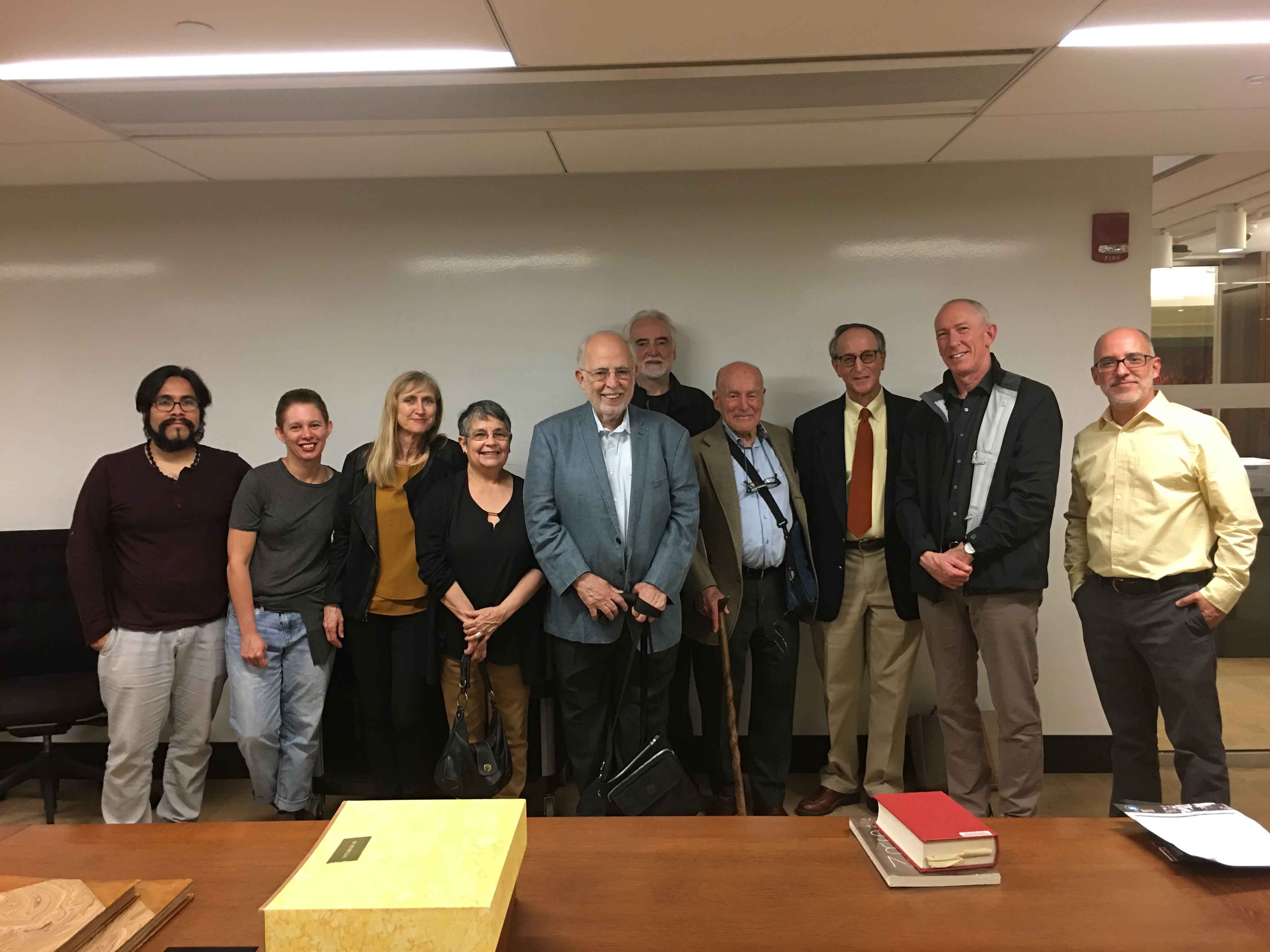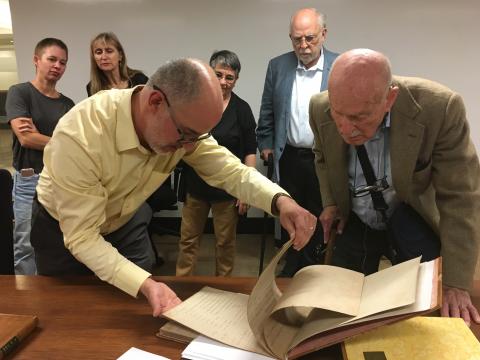Professor emeritus Stanley J. Stein visits Brazilian collection acquired in honor of him and Barbara Hadley Stein

From left to right: Mauricio Acuña, Andrea de Castro Melloni, Gabrielle Winkler, Alma Concepción, Arcadio Díaz-Quiñones, Michael Stone, Stanley J. Stein, Don Skemer, Jeremy Adelman, and Fernando Acosta-Rodríguez.
Princeton University professor emeritus Stanley J. Stein visited Firestone Library on Thursday, May 10 and viewed the collection Princeton University Library recently acquired in honor of him and his wife, Barbara Hadley Stein, PUL's first Bibliographer for Latin America, Spain, and Portugal.
The collection, acquired by the Department of Special Collections' Manuscripts Division, documents historical manuscripts about African slavery and the plantation economy in colonial and imperial Brazil. Divided into two parts, it includes insight into the slave trade, plantation economy, and the lives of Afro-Brazilian slaves and their families; transcribed financial accounts of the Ribeiro de Avellar family, owners of a slave plantation; and 144 letters written by Domingos Alves da Silva Porto, manager of Avellar & Companhia, an agricultural export business in Rio de Janeiro, to Joaquim Ribeiro de Avellar. The acquisition honors Stanley and Barbara Stein's contributions to the library's Latin American collections and to Latin American studies at Princeton.

Fernando Acosta-Rodríguez and Stanley Stein view items from the collection in honor of Stein and his wife, Barbara.
His wife, Barbara Stein, who served at the library from 1966 to 1977, established the foundations of what is today one of the greatest Latin American library collections in the world. Among her many accomplishments was the inception of the Latin American Ephemera collection. She recognized a need to document items related to major political changes in Latin American countries, such as the rise of military dictatorships, the Cuban Revolution, and the popular responses to these developments. Under her successors, Peter T. Johnson (1977-2003) and Fernando Acosta-Rodríguez (2003-present), the collection has grown significantly, expanding the geographic and thematic scope, systematizing the process of organizing, cataloging, and preserving, and moving towards open, digital access.
Also present during the RBSC visit were Fernando Acosta-Rodríguez, Librarian for Latin American, Latino, and Iberian Peninsular Studies; Mauricio Acuña, graduate student in the Department of Spanish and Portuguese; Jeremy Adelman, Henry Charles Lea professor of history; Alma Concepción, independent artist and scholar; Andrea de Castro Melloni, Lecturer for the Department of Spanish and Portuguese; Arcadio Díaz-Quiñones, Emory L. Ford professor of Spanish, emeritus; Don Skemer, Curator of Manuscripts; Michael Stone, Executive Director of Princeton in Latin America (PiLA); and Gabrielle Winkler, Special Collections Assistant for the Latin American Ephemera collection.
For more information on the recent acquisition, visit the Manuscripts Division blog.
Written by Stephanie Ramírez, Library Communications Assistant
Media contact: Barbara Valenza, Library Communications Manager
Newsletter
Subscribe to Princeton University Library’s e-newsletter for the latest updates on teaching and research support, collections, resources, and services.
